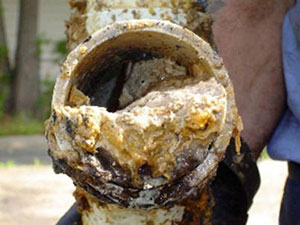How to get smart about keeping grease out of our drain pipes
Most people think it’s only the bacon grease from their breakfast that’s bad for their drain pipe. The hard truth is that the food and the dishes such as woks, fryers, baking trays we use in our own kitchen and the ones we enjoy at…

Most people think it’s only the bacon grease from their breakfast that’s bad for their drain pipe. The hard truth is that the food and the dishes such as woks, fryers, baking trays we use in our own kitchen and the ones we enjoy at various establishments are covered in it. Keeping grease out of your drain pipe can save you money in the long run. Meats, food scraps, sauces, dairy products and even cosmetics all have oils and grease in them. This not only causes clogged pipes – it’s damaging our sewer system and expanding the fat infestation levels.
The article below will describe what happens when any oil or grease from your food and dishes gets down your pipes and into the sewers. You’ll also receive some preventative tips on how to avoid clogged drains and help reduce related pollution.
What happens to the grease and oil when it goes down your drain pipe?
When oil, fat or grease goes down your pipe over time it creates drain blockage. The oils and fats mix with water harden over time to clog your pipes. It’s just like a clogged artery. It happens gradually and the effects are deadly. When oil, grease and fat end up into rainwater pipes they cause pollution in streams and rivers. Just like you would see a cardiologist for your heart it’s best to visit your local certified plumber to find out more about your drain situation. In the meantime here are some tips to follow.
Signs to look for when you think your drain pipe is clogged with grease
- You’ll have slow water drainage
- There may be a bad smell emanating from your drain
- Gurgling noises coming from your pipes
Kitchen rules to live by to reduce grease from entering your drain pipe
- Wipe down and scrape plates, pans and utensils before washing and put waste in garbage
- Collect any waste oil in a secure container
- Use strainers in sink plug holes
- Maintain grease traps
- Waste oil and fat should be collected in an air-tight container
- Clear your drains once a week by filling it to the brim and then pulling the stopper. You can add vinegar and baking soda for a better clean.
- Training all kitchen employees at eateries should be common practice and include instruction on why it is important to keep fats, oils, grease and food waste out of drains and sewers.
To learn more about this topic, or if you have any questions about your drain pipe and are experiencing some backflow contact A1 Choice Plumbing & Drain Inc.


Sorry, the comment form is closed at this time.